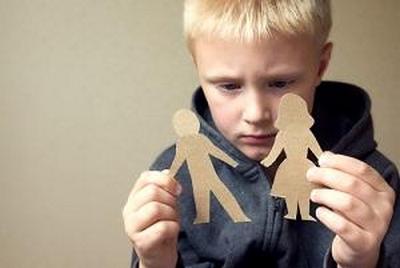Recent Blog Posts
Sharing Custody of Children After Your Divorce
 If you are a parent who is considering ending your marriage, you probably have many concerns related to your children. You may worry about how you children will take the news of the divorce or how you and your spouse will share custody of the children after the split. If you and your soon-to-be-ex spouse plan to have joint custody of your children, you will need to learn how to share parental responsibilities in a way that prioritizes your children’s best interests. It can take hard work and humility, but the good news is that effective co-parenting after divorce is possible.
If you are a parent who is considering ending your marriage, you probably have many concerns related to your children. You may worry about how you children will take the news of the divorce or how you and your spouse will share custody of the children after the split. If you and your soon-to-be-ex spouse plan to have joint custody of your children, you will need to learn how to share parental responsibilities in a way that prioritizes your children’s best interests. It can take hard work and humility, but the good news is that effective co-parenting after divorce is possible.
There Is Not Just One “Right” Way to Co-Parent
Just as every marriage is unique, every divorce is unique. Sometimes, a married couple breaks up and there are almost no feelings of bitterness or hostility between the former spouses. Other times, a divorce is wrought with conflict and spite. The way you co-parent will largely be determined by the relationship you have with your children’s other parent. If you and the other parent are able to easily communicate about child-related plans and concerns, you may be able to have a more casual co-parenting arrangement. However, if you and your children’s other parent struggle with productive communication, you may want to make firm parenting plans and decisions in advance.
Alternatives to Litigation in Your Illinois Divorce
 Just as every marriage is unique, every divorce is unique as well. There is no perfect way to end a marriage and spouses should choose the divorce options and resources which fit their particular needs. Some couples are able to get a divorce without any help resolving divorce issues such as disagreements regarding property division, child custody, or other concerns. However, many couples need help in order to come to an agreement about these issues. In situations such as these, divorcing individuals in Illinois may benefit from alternative dispute resolution in the form of mediation and collaborative law.
Just as every marriage is unique, every divorce is unique as well. There is no perfect way to end a marriage and spouses should choose the divorce options and resources which fit their particular needs. Some couples are able to get a divorce without any help resolving divorce issues such as disagreements regarding property division, child custody, or other concerns. However, many couples need help in order to come to an agreement about these issues. In situations such as these, divorcing individuals in Illinois may benefit from alternative dispute resolution in the form of mediation and collaborative law.
Mediation Can Help Couples Communicate About Divorce Issues
Understandably, it can be very difficult for divorcing spouses to come to a resolution regarding divorce issues. They may have feelings of resentment, anger, or blame toward each other which make it hard to discuss issues without the discussion collapsing into arguments. During the mediation process, divorcing spouses work with a qualified mediator who acts as a neutral third party to facilitate productive conversations.
Illinois Lawmakers Propose Law to Help Residents Getting Divorced Change Their Names
 Many women, and some men, change their last name to their new spouse’s last name when they get married. This is a meaningful tradition for many. Unfortunately, it is currently much easier for people to change their name when they get married than when they get divorced. An archaic rule in Illinois law makes the current process for changing your last name much more difficult than it needs to be. Illinois Senator Cristina Castro hopes to change this.
Many women, and some men, change their last name to their new spouse’s last name when they get married. This is a meaningful tradition for many. Unfortunately, it is currently much easier for people to change their name when they get married than when they get divorced. An archaic rule in Illinois law makes the current process for changing your last name much more difficult than it needs to be. Illinois Senator Cristina Castro hopes to change this.
Current Law Regarding Name Changes
For many people, changing your last name to that of your spouse is an important part of getting married. Currently, the process for a name change in Illinois is much easier if you have a marriage certificate. However, the process for changing your name after divorce is much more involved. In Illinois, there is currently a requirement that anyone seeking a name change to must publish a notice of that change in a newspaper. However, this requirement is lifted for individuals who can show a court-issued marriage certificate. While this works well for those getting married, what about people getting divorced?
Can I Recover Marital Funds That My Spouse Wasted at the End of Our Marriage?
 It is an unfortunate reality that divorce can sometimes bring out the worst in people. When a marriage is ending, spouses can sometimes act in ways which deplete the martial estate. They may purposely waste marital funds so that the other spouse does not have access to them or they may have an expensive drug, alcohol, gambling, or shopping addiction which drains the estate. If you are getting divorced and your spouse has squandered shared assets, you may be able to recover these assets through a dissipation claim.
It is an unfortunate reality that divorce can sometimes bring out the worst in people. When a marriage is ending, spouses can sometimes act in ways which deplete the martial estate. They may purposely waste marital funds so that the other spouse does not have access to them or they may have an expensive drug, alcohol, gambling, or shopping addiction which drains the estate. If you are getting divorced and your spouse has squandered shared assets, you may be able to recover these assets through a dissipation claim.
Illinois Law Regarding Dissipation of Assets
The term “dissipation” generally means to waste or spend resources frivolously or recklessly. With regard to divorce law, dissipation occurs when a spouse uses marital funds for a purpose not benefiting the marriage after the marriage has suffered an “irretrievable breakdown.” There is some ambiguity about what exactly constitutes this breakdown, but it is generally defined as the moment that a married couple ceases attempts at reconciliation. In other words, an irretrievable breakdown occurs when divorce is imminent.
What Happens to Retirement Plans During an Illinois Divorce?
 One of the most complicated parts of the divorce process is often the division of martial property. We generally think of marital property as physical items like fine art, collectables, or vehicles. However, these are not the only assets which must be divided. Retirement assets like pensions and 401(k) accounts must also be addressed during an Illinois divorce. Due to their nature, these assets cannot simply be sold and the proceeds split between divorcing spouses. According to Illinois law, there are certain steps that must be taken to ensure that retirement accounts are divided fairly during a divorce.
One of the most complicated parts of the divorce process is often the division of martial property. We generally think of marital property as physical items like fine art, collectables, or vehicles. However, these are not the only assets which must be divided. Retirement assets like pensions and 401(k) accounts must also be addressed during an Illinois divorce. Due to their nature, these assets cannot simply be sold and the proceeds split between divorcing spouses. According to Illinois law, there are certain steps that must be taken to ensure that retirement accounts are divided fairly during a divorce.
Valuing a Pension for the Purposes of Divorce
There are two major factors which influence how a pension is handled during a divorce. First, a determination must be made about whether the pension is marital property or separate property. In Illinois, only marital property, or shared property, is divided between divorcing spouses. Marital property generally includes property which is acquired by either spouse during the course of the marriage. However, it can also include comingled assets which started out as separate property but then became mixed with marital property. Often, the value of the pension that accrued throughout the marriage is deemed marital property and the portion of the pension present before the marriage is considered separate property.
When Can an Illinois Child Support Order Be Changed?
 Child support payments can be a great way for unmarried or divorced parents to share the costs of raising a child. Child support in Illinois is calculated by the courts using the “income shares” model. This means that both parents’ income, property, and financial circumstances are taken into account in order to arrive at a child support amount which is fair and reasonable for both parties. Of course, life can sometimes be less than predictable, and situations can arise when a parent needs to change the amount of child support he or she is paying or receiving. If you are struggling to pay your court-ordered child support in Illinois, you may be able to reduce your payment by requesting a child support order modification.
Child support payments can be a great way for unmarried or divorced parents to share the costs of raising a child. Child support in Illinois is calculated by the courts using the “income shares” model. This means that both parents’ income, property, and financial circumstances are taken into account in order to arrive at a child support amount which is fair and reasonable for both parties. Of course, life can sometimes be less than predictable, and situations can arise when a parent needs to change the amount of child support he or she is paying or receiving. If you are struggling to pay your court-ordered child support in Illinois, you may be able to reduce your payment by requesting a child support order modification.
When Can Child Support Be Modified?
There are only certain circumstances which warrant a child support modification. One way to change your child support payment amount is through a mutual agreement with your child’s other parent. If you and the other parent are able to agree on a new payment amount, you can draft your own written agreement, sign it, and submit it to the court for approval. If the court approves the new child support arrangement, the terms in your signed agreement are legally binding. If your child’s other parent does not agree to a modification, you will need to petition the court for a child support modification. The court will only grant a modification if there is a substantial circumstantial change. Circumstances that may lead to a modification request being approved include but are not limited to:
Child Custody and Child Support Concerns When a Parent is Incarcerated
 Children across the United States have a parent who is in jail or prison. When a parent who is unmarried or divorced is convicted of a crime, there may be implications for child custody and child support. Illinois family courts always make child custody decisions based on the best interests of the child. If the parent has been arrested for a domestic violence-related crime, it is possible that they will not be awarded any parental responsibility or parenting time or that their parental responsibility will be reduced.
Children across the United States have a parent who is in jail or prison. When a parent who is unmarried or divorced is convicted of a crime, there may be implications for child custody and child support. Illinois family courts always make child custody decisions based on the best interests of the child. If the parent has been arrested for a domestic violence-related crime, it is possible that they will not be awarded any parental responsibility or parenting time or that their parental responsibility will be reduced.
Parenting Time and Allocation of Parental Responsibility Orders
There are many different things which can happen when a parent of a child is incarcerated. If the parent required to serve time is the parent with the majority of parental responsibility, sometimes called the custodial parent, then the most immediate concern is who the child will live with. If the other parent is involved in the life of the child and is not found to be unfit, they will likely be able to assume the main parenting role. If the child’s other parent is unable to fulfill this role, however, the child may be placed with a relative or guardian. Such a change may require modifying the existing parenting time and responsibility allocation arrangement through the court.
Common Mistakes Made During a High-Net Worth Divorce
 When Amazon founder and “world’s richest man” Jeff Bezos announced his divorce from his wife MacKenzie Bezos, the media called it the most expensive divorce in history. Jeff Bezos’s estimated net worth is an astounding $131 billion. When wealthy individuals or business owners get divorced there are many additional factors which must be considered. Because there is so much at stake, it is crucial that divorcing high-net worth individuals seek counsel from a knowledgeable divorce attorney with experience handling high asset or high net worth divorces. If you own a business or have complex investments and a high net worth, make sure to avoid these common mistakes during divorce.
When Amazon founder and “world’s richest man” Jeff Bezos announced his divorce from his wife MacKenzie Bezos, the media called it the most expensive divorce in history. Jeff Bezos’s estimated net worth is an astounding $131 billion. When wealthy individuals or business owners get divorced there are many additional factors which must be considered. Because there is so much at stake, it is crucial that divorcing high-net worth individuals seek counsel from a knowledgeable divorce attorney with experience handling high asset or high net worth divorces. If you own a business or have complex investments and a high net worth, make sure to avoid these common mistakes during divorce.
Rushing the Divorce Process
When a marriage ends because of an affair or other hurtful scenario, the couple often wants the divorce to be finalized as soon as possible. Even couples who have not had a dramatic end to the marriage may want to get the divorce over with quickly so that they can move on with their lives. Unfortunately, high-net worth divorces are rarely speedy. Business valuations or asset valuations could take months or even longer to complete. In addition to your attorney, you may require help from a financial advisor, forensic accountant, or other professional in order to sort out your finances during a high net worth divorce. When divorcing couples rush, they can make hasty decisions which end up costing much more in the long run. While it is understandable that you want your divorce to reach a resolution as quickly as possible, rushing or skipping important steps in the divorce process can lead to more trouble than it is worth.
Co-Parenting Strategies for Divorced Parents Who Want to Share Custody
 If you are a parent who is considering divorce, you are probably worried about how the divorce will affect your children. While having divorced parents is not unusual these days, the transition from a one-house family to a two-house family can be rough on children. There is no perfect way to share custody of children as divorced parents. Some divorced parents choose to stay highly involved in each other’s lives and even take family vacations all together after the divorce. Other divorced parents choose to lead completely separate lives and only communicate when absolutely necessary. Your personal co-parenting strategy will depend on your unique circumstances and what you believe is best for your children.
If you are a parent who is considering divorce, you are probably worried about how the divorce will affect your children. While having divorced parents is not unusual these days, the transition from a one-house family to a two-house family can be rough on children. There is no perfect way to share custody of children as divorced parents. Some divorced parents choose to stay highly involved in each other’s lives and even take family vacations all together after the divorce. Other divorced parents choose to lead completely separate lives and only communicate when absolutely necessary. Your personal co-parenting strategy will depend on your unique circumstances and what you believe is best for your children.
Create a Detailed Parenting Agreement
Anyone getting divorced in Illinois who wishes to share parental responsibility with their child’s other parent must create a parenting agreement. Illinois law requires that certain items be included in this agreement. For example, parents must include a schedule for sharing parenting time (formerly called visitation) and parental responsibility (custody) as well as provisions for how the children will be transported between the households. Of course, there is no need to only include the minimum requirements in your parenting agreement. In fact, being more detailed and including agreements specific to your family is a great way to make sure you and your soon-to-be-ex spouse are on the same page. Including these agreements in writing helps ensure that they are followed by all parties after the divorce.
When Can a Marriage Be Annulled in Illinois?
 Annulment differs significantly from divorce or separation. While a divorce ends a marriage, an annulment cancels the marriage entirely. After a marriage has been annulled, it is as if the marriage never happened. Annulments are only granted for specific reasons in certain situations. Not just any anyone qualifies for an annulment, or as it is called in Illinois, a Declaration of Invalidity of Marriage. If you have reason to believe your marriage is invalid and should be annulled, read on to learn more.
Annulment differs significantly from divorce or separation. While a divorce ends a marriage, an annulment cancels the marriage entirely. After a marriage has been annulled, it is as if the marriage never happened. Annulments are only granted for specific reasons in certain situations. Not just any anyone qualifies for an annulment, or as it is called in Illinois, a Declaration of Invalidity of Marriage. If you have reason to believe your marriage is invalid and should be annulled, read on to learn more.
Grounds for Annulment in Illinois
A marriage cannot be annulled just because a couple regrets getting married. If a couple wishes to have their marriage declared invalid, they must meet one of several criteria. Firstly, a marriage can be invalidated if a party could not consent to the marriage due to mental illness or incapacitation, or because one or both parties were under the influence of drugs or alcohol. A marriage which someone enters into through force, fraud, or duress can also be declared invalid. Furthermore, marriages can be annulled if one of the parties lacks the ability to consummate the marriage and the other party did not know about this incapacity. In Illinois, individuals aged 16-17 years can only get married with consent from a parent or guardian, or via judicial approval. If a party was under 18 at the time the marriage took place and did not have the required approval, the marriage can be annulled.











 630-352-2240
630-352-2240



